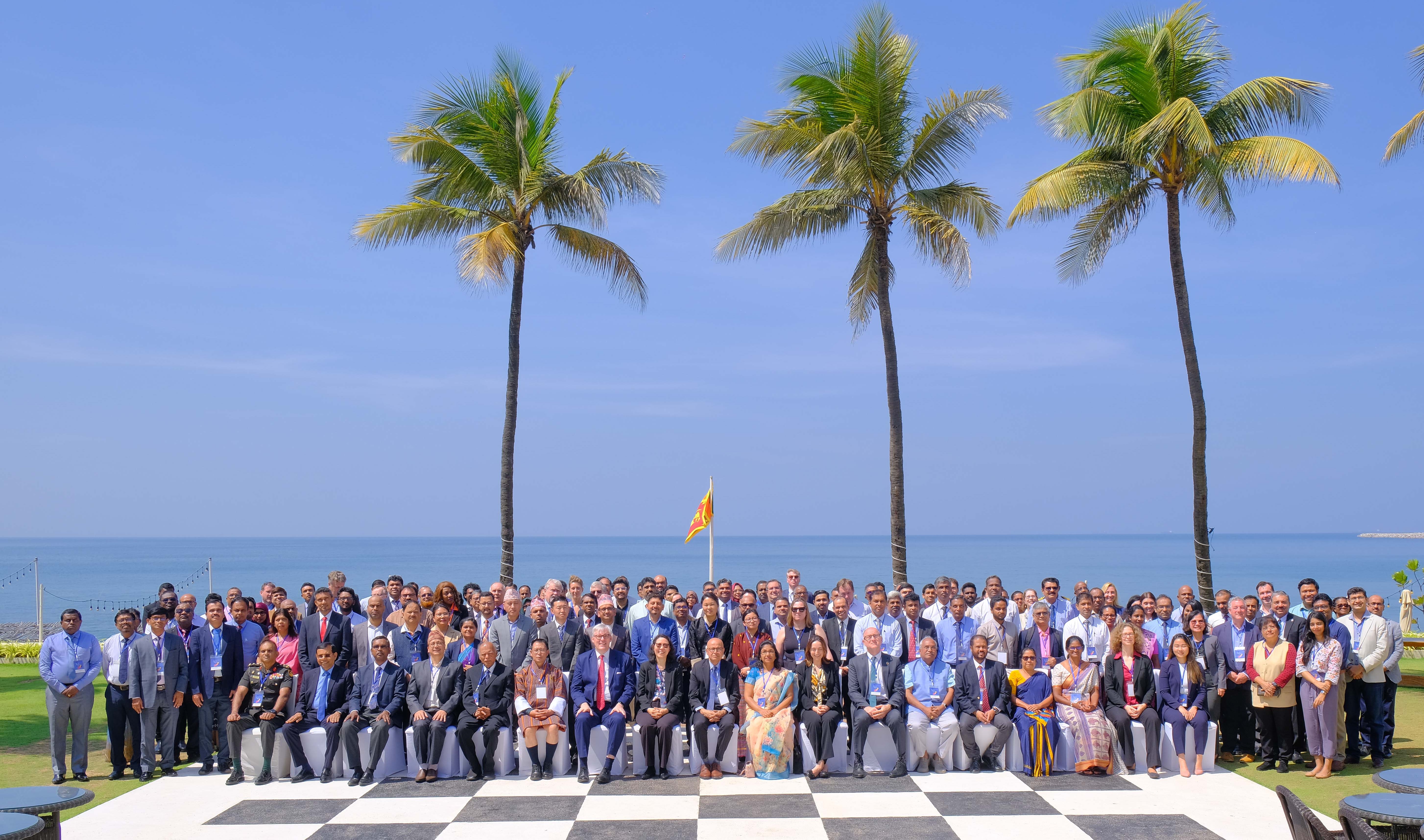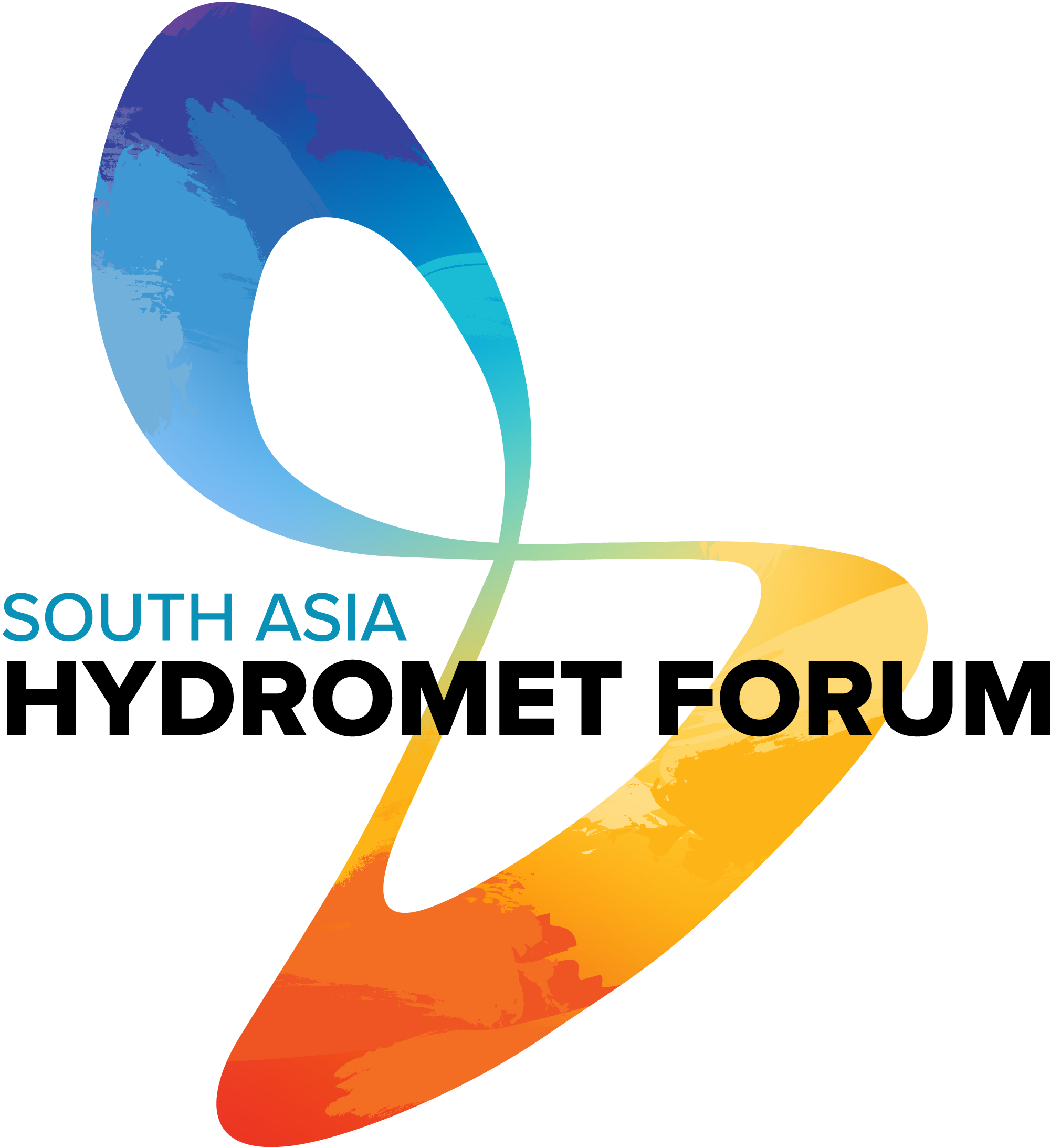SOUTH ASIA HYDROMET SERVICES FORUM IV
Unlocking Regional Synergies
Galle Face Hotel, Colombo, Sri Lanka
February 6-8, 2024

South Asia stands as one of the most vulnerable regions to hydrometeorological hazards, with over half of its population—750 million people across eight countries—impacted by weather-related extreme events in the past two decades. Hydrometeorological services are key to not only provide early warnings to the population and across economic sectors, but also to inform seasonal measures to increase productivity and long-term climate resilient investments and climate-informed planning. Since weather and water don’t know borders, and hydromet services face similar challenges including human and financial resource limitations with differing levels of capacity in South Asia, regional collaboration offers rich opportunities for joint learning, knowledge exchange, and operational collaboration to create synergies and economies of scale.
SAHF4 AGENDA
Day 1 – February 6
8:30 – 9:45 Security Check (registration closes 15min prior to the start of the event) Coffee and Registration
Session 1
10:00 – 11:00
Opening Ceremony. This session will offer opening remarks and reflections on the relevance of hydromet services for climate resilience as well as the complementarity of national and regional efforts. After the lighting of the lamp, opening remarks will be provided by:
Karma Dupchu, Co-chair of SAHF and Director National Center for Hydrology an2d Meteorology, Bhutan
Dina Umali-Deininger, Director of the South Asia Region, WB
Ranil Wickremesinghe, President of Sri Lanka
Andrew Patrick, High Commissioner, UK
Carmen Moreno (TBC), Ambassador, EU
Cecile Fruman, Director for Regional Integration in South Asia, WB
Celeste Saulo, Secretary-General, WMO
11:00 – 11:15 Group Photo
11:15 – 11:45 Break
Session 2
11:45 – 12:45
Creating value – the role of hydrometeorological services. This session will frame the conference along the value chain and the need for actionable information provided to the right people at the right time to reduce multi-hazard risk and enable socio-economic benefits. Presenters include:
Melanie Kappes, Disaster Risk Management Specialist, WB – Creation of value along the hydromet value chain
Nusrat Noman, Joint Secretary, Planning Commission Bangladesh – The role of hydromet services in public investment planning
Carlo Buontempo (virtual), Director of the Copernicus Climate Change Service, ECMWF – The role of climate services for climate resilience
Abhas Jha, Practice Manager, WB – The value of national hydromet services and the role of regional collaboration
12:45 – 14:00 Lunch
Session 2
11:45 – 12:45
Chair: David Grimes, SAHF TAG
Forging a shared vision for building a regional observation network for more efficient weather, water and climate services: This session will explore mechanisms that can be applied to expand, sustain and make most efficient use of the existing observations as a region, and steps towards establishing rules of an operational regional basic observation network, to achieve high-resolution spatial and temporal observation. A panel discussion will be followed by a facilitated conversation including the audience. The panelists of the session are:
K. J. Ramesh, SAHF Advisor, RIMES
Roar Skålin (virtual), Chair of the EUMETNET Assembly and Director General Met Norway
Estelle Grüter (virtual), Chair of Standing Committee on Earth Observing Systems and Monitoring Networks, WMO
Anju Gaur, Sr. Water Resource Management Specialist, WB
Ashish Raval, President & CEO of Synoptic Data PBC and HMEI Vice-Chair
15:30 – 15:45 Break
Technical Side Session
15:45 – 17:15
Chair: Ben Churchill, Director, Regional Office for Asia and the South-West Pacific, WMO
Technical side-session: Implement and leverage SOFF from a regional perspective
19:30 Welcome dinner and cultural event Speaker – Dinendra Ruwan Wijewardene (TBC), Sr. Advisor to the President on Climate Change
Day 2 – February 7
Session 4
09:30 – 11:00
Chair: Mr. Karma Dupchu, Co-chair SAHF & Director NCHM Bhutan
& Ali Shareef, Deputy Director, MMS Maldives
Fostering regional collaboration to strengthen the service delivery and impact on public welfare: This session will explore opportunities to jointly enhance services in South Asia with emphasis on the needs of people in mountain regions, coastal communities, and agriculture. Expertise is scattered throughout the region with limited human resources to develop the required level of services in many countries. A panel discussion will be followed by a facilitated conversation including the audience. The panelists of the session are:
Nishadi Eriyagama, Deputy Country Mangers, Sri Lanka, International Water Management Institute (IWMI)
Faisal Mueen Qamar, Intervention Manager for Resilient River Basin, International Center for Integrated Mountain Development (ICIMOD)
Ajay Kumar, Scientist, India National Centre for Ocean Information Services (INCOIS)
Temily Baker, Programme Management Officer, United Nations Economic and Social Commission for Asia and the Pacific (UN ESCAP)
Tshering Wangchen, Principal Agriculture Officer, Ministry of Agriculture, Bhutan
11:00 – 11:30 Break
Session 2
11:45 – 12:45
Empowering communities to make informed decisions: This session will facilitate an exchange and discussion on digital solutions and last-mile communication needed to enable people to take anticipatory action, and how the region can jointly progress towards action for climate resilience. A panel discussion will be followed by a facilitated conversation including the audience. The panelists of the session are:
Ruby Rose Policarpio, Institutional Development Specialist, RIMES
Terrence Fernando, Professor, University of Salford
Helen Caughey, Deputy Chief Meteorologist, Met Office, UK
Madhab Uprety, Sr. Technical Advisor, Red Cross Red Crescent
Ginige Prasanna Janaka Kumara, District Secretary, Kalutara District, Sri Lanka
12:45 – 14:00 Lunch
Session 5
11:30 – 13:00
Chairs: Abhas Jha, WB and David Rogers, WB
Forging a shared vision for building a regional observation network for more efficient weather, water and climate services: This session will explore mechanisms that can be applied to expand, sustain and make most efficient use of the existing observations as a region, and steps towards establishing rules of an operational regional basic observation network, to achieve high-resolution spatial and temporal observation. A panel discussion will be followed by a facilitated conversation including the audience. The panelists of the session are:
K. J. Ramesh, SAHF Advisor, RIMES
Roar Skålin (virtual), Chair of the EUMETNET Assembly and Director General Met Norway
Estelle Grüter (virtual), Chair of Standing Committee on Earth Observing Systems and Monitoring Networks, WMO
Anju Gaur, Sr. Water Resource Management Specialist, WB
Ashish Raval, President & CEO of Synoptic Data PBC and HMEI Vice-Chair
13:00 – 14:00 Lunch
Session 6
14:00 – 15:30
Chairs: K.J. Ramesh, SAHF Advisor, RIMES & Alice Soares, WB
Towards Regional Prediction and Analytics: This session will explore requirements, resources, products, models, and coordination mechanisms that can support the strengthening of regional forecasting and analytics including emerging new technologies. A panel discussion will be followed by a facilitated conversation including the audience. The panelists of the session are:
S. M. Quamrul Hassan, Meteorologist, Bangladesh Meteorological Department and Chair of the SAHF Numerical Weather Prediction Working Group
V S Prasad, Head, National Centre for Medium Range Weather Forecasts (NCMRWF)
Alan Thorpe, (virtual), SAHF TAG
Kirstine Dale, (virtual) Chief AI Officer, UK Met Office
Hans Olav Hygen, Head of Climate Services, Met Norway
15:30 – 16:00 Break
Technical Side Session
16:00 – 17:00
Chair: Ashish Raval, vice-chair of HMEI and CEO of Synoptic Data PBC
The role of the private sector to foster innovation and empower hydromet services for providing sustainable systems, actionable insights and early warnings to save lives and protect property. This session will discuss how trust can be established, sustainable projects can be developed and latest technology can be leveraged through public private partnerships.
Technical Side Session
17:00 – 18:00
Chair: Ben Churchill, Director, Regional Office for Asia and the South-West Pacific, WMO
Early Warnings for All – A Partnership Approach. This session will enable discussion on the UN Early Warnings for All initiative and its enabling mechanisms. The objective is to share experiences and identify opportunities and innovative approaches to fast-track early warning systems that help vulnerable communities adapt to climate change, save lives and livelihoods, and contribute to socio-economic development.
Closed Side Event
18:00 – 19:00
Facilitator: Abhas Jha, Practice Manager, WB
Reception – Partners meeting on SAHF: Development Partners, RIMES & SAHF EC members
Day 3 – February 7
Session 7
9:00 – 9:20
Presenter: Tshencho Dorji, RIMES
Setting the scene: This session will provide a summary of key points raised over the last two days particularly as it is linked to the resolution, and a presentation of the draft Conference Declaration
Session 8
9:20 – 10:30
Facilitator: David Grimes, SAHF TAG
Aligning around key outcomes and priorities: In this session participants will discuss in small group to provide their aspirations and priorities for enhanced regional cooperation in South Asia Region, followed by a short plenary to facilitate quick reporting.
10:30 – 10:45 Break
Session 9
10:45 – 13:00
Facilitator: David Grimes, SAHF TAG and K.J. Ramesh, SAHF Advisor, RIMES
Framing the elements of a SAHF action plan: Aligned with the preceding Session (8) outcomes and the implementation of enhanced regional cooperation among SAHF members, group discussions will aim at identifying key actionable “next steps”. Any addition to the decalaration?
13:00 – 14:00 Lunch
Session 10
14:00 – 15:00
Chair: Melanie Kappes, DRM Specialist, WB & Jerry Lengoasa, SAHF TAG
Panel Discussion of the SAHF Executive Council and RIMES: Reflections on the conference deliberations and the future direction of SAHF
15:00 – 15:15 Break
Session 11
15:15 – 16:00
Chair: Athula Karunanayake, Director General, DoM GoSL
Closing session:
Presentation of the final draft Declaration
Karma Dupchu, Director of the National Centre of Hydrology and Meteorology (NCHM), Bhutan and SAHF Co-chair
Chiyo Kanda, Country Manager for Sri Lanka, WB
Lisa Whanstall, Deputy High Commissioner, UK
Dinendra Ruwan Wijewardene, Sr. Advisor to the President on Climate Change, GoSL
Vote of Thanks
Conference Ends “Market Place” of local vendors outside the Banquet Hall
Closed Side Session
16:30 – 17:30
Chair: Alice Soares
Critical technical and strategic aspects to make best use of NWP data by NMHSs: In this session participants will discuss in small group to address critical technical aspects that allow use of NWP data, including the visualization tools and capacity building requirements. The group will also discuss strategic approaches for the region to overcome the challenges NMHSs face in NWP.
